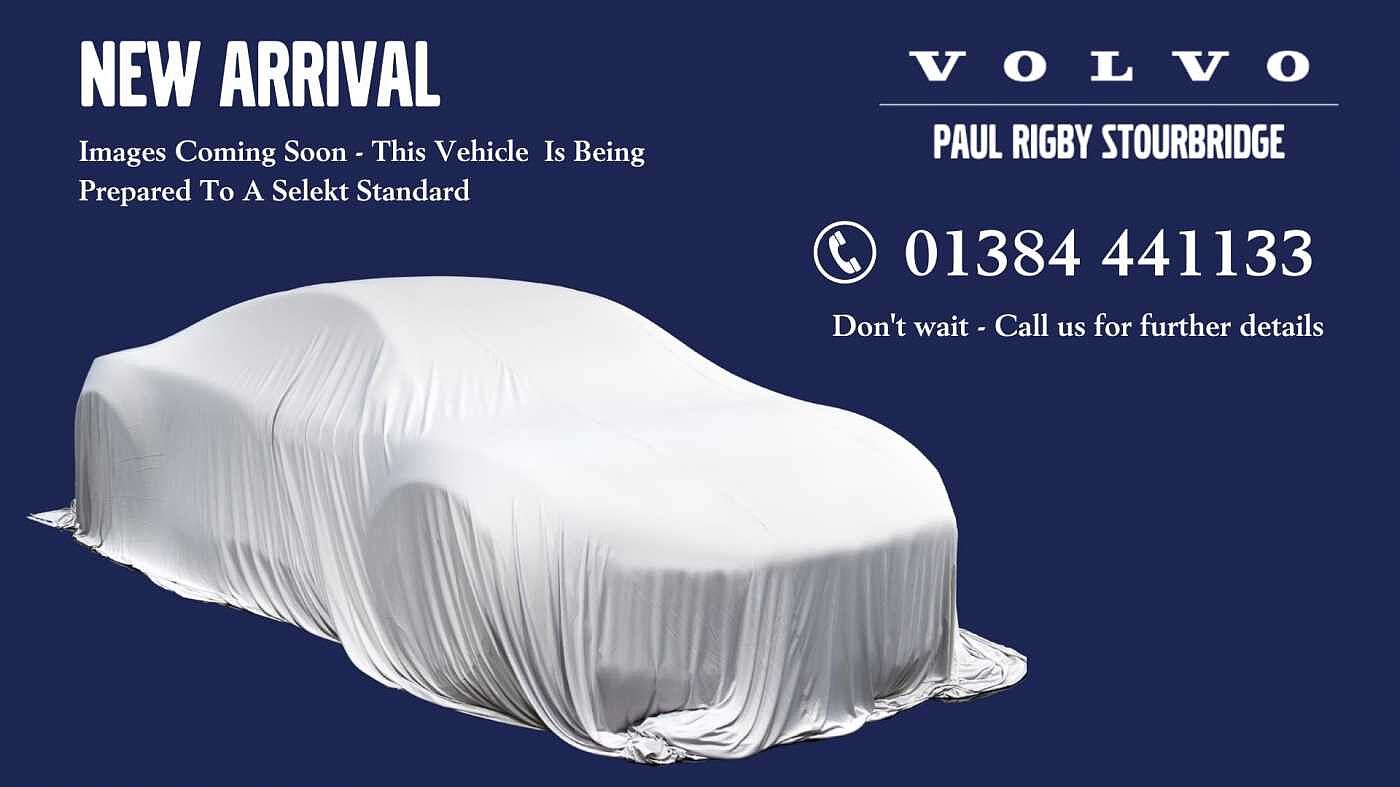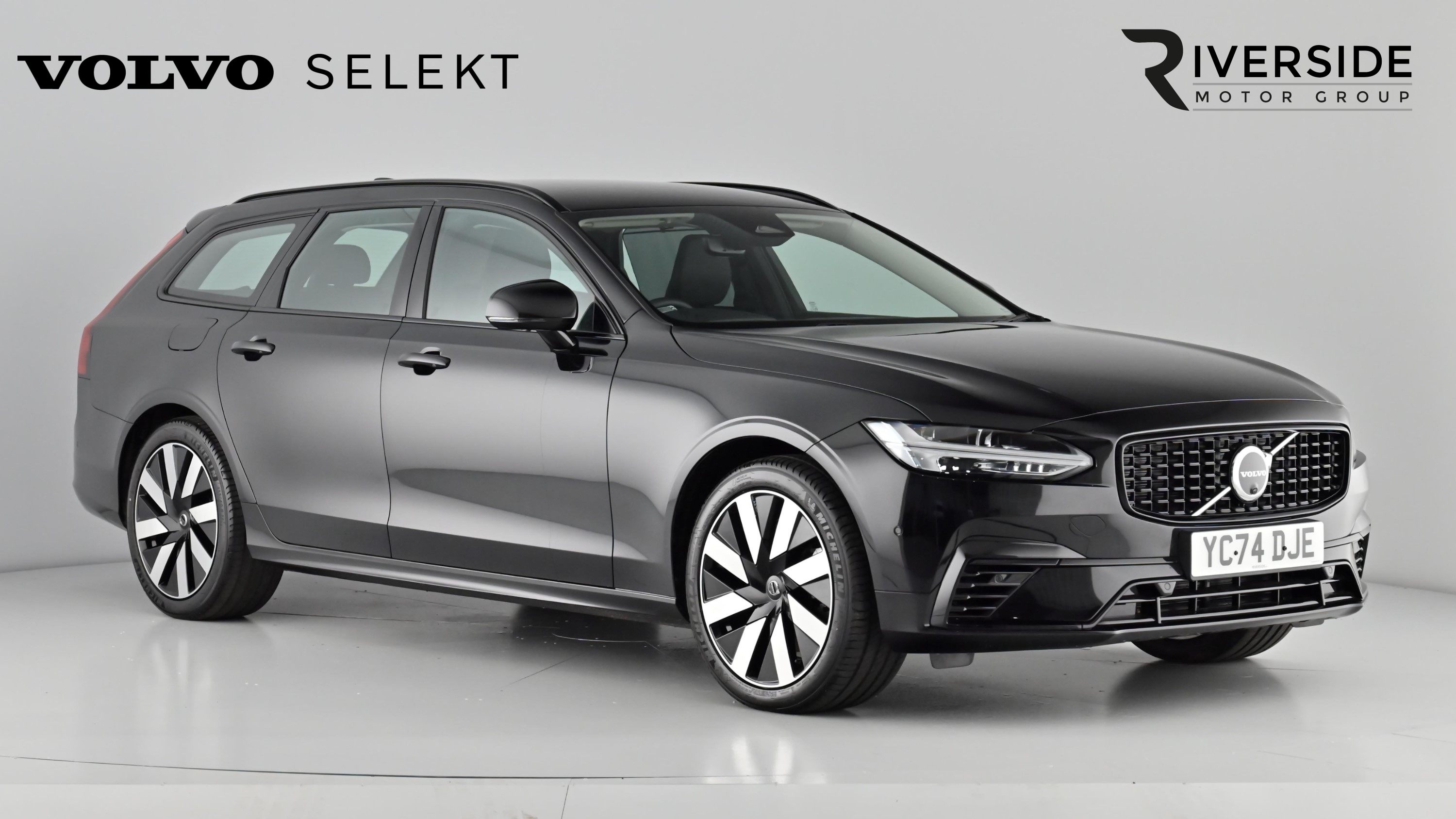Used Volvo V90 Cross Country for sale: everything you need to know
The Cross Country name has been around in Volvo’s range for a while. It started with the V70 Cross Country as far back as 1997, before XC70 became a badge in its own right. Now that XC refers to Volvo’s SUVs, the Cross Country name has returned - with the latest V90 Cross Country offered between 2017 and 2023.
It’s effectively an estate car with slightly raised suspension and appealingly chunky body cladding, hinting at (and helping to deliver) slightly improved off-road ability, for those who might not need a full 4x4 but do stray off the beaten path now and then. And it’s just as appealing an idea as it was back with that first Cross Country in 1997.
Other raised estates offered over the years include Audi’s Allroad models (found on the A4 Avant and A6 Avant), the Skoda Octavia and Superb Scout variants, and another of the original raised estates, the Subaru Legacy Outback. Among those, price and brand appeal are the main deciding factors, as all are appealing in their own way.
Should you buy a Volvo V90 Cross Country?
If you’re torn between the idea of one of Volvo’s traditional estates or one of its SUVs, then the V90 Cross Country could be the car for you. Alternatively, you might simply be uninterested in buying an SUV, but still need some off-road ability. Or maybe, you just like the idea of a slightly tougher-looking estate, with some extra clearance for today’s increasingly broken roads - and we wouldn’t blame you.
One of the V90 Cross Country’s downsides as a new car was its lofty price, but that’s where buying a used one comes in. Given Volvo has discontinued its estates in the UK, it’s also now the only way to buy one, but thankfully they were a fairly popular choice among V90 buyers so the market for pre-owned models is broad too.
It’s a handsome car inside and out, with the obligatory external cladding and skid plates, and inside the same neat detailing as the regular V90. The same space, too - the V90 is a big car, not far off five metres long, and there’s not just plenty of room for passengers but also a large boot.
Ride, handling, and performance don’t differ much from the regular V90, which is another aspect of the car’s appeal. All-wheel drive is standard, for confidence in poor conditions, but we’d avoid the largest alloy wheel options as the ride starts to get quite firm - even if the extra ground clearance is peace of mind over potholes.
Premium market alternatives to the Volvo include the Audi A6 Allroad and Mercedes-Benz E-Class All Terrain. The Mercedes has an even bigger cabin and boot than the Volvo, and an even more relaxing, smooth-riding gait. Lower-budget alternatives include the Skoda Superb Scout and Subaru Legacy Outback, while Volvo’s own SUVs such as the XC90 remain an option too.
A Volvo V90 Cross Country not for you? We've got 1000s of used cars for sale to suit all budgets and needs
What’s the best used Volvo V90 Cross Country model to buy?
The diesels make the sensible pick here, on account of economy figures 10mpg better than that of the petrol models, even if their performance lags slightly behind. With so much low-revs urge they’re a more relaxing way to travel and don’t lag hugely on refinement either.
As there’s only one trim level for the Cross Country your choice is already made there, though keep an eye out for some of the different colour options and interior hues, the latter making a difference to how inviting the interior feels. Volvo did of course offer a few options and accessories, so some Cross Countrys may be slightly different to others.
Used Volvo V90 Cross Country fuel economy and performance
- Volvo V90 Cross Country B5: The four-cylinder petrol turbo engine in B5 specification made 250PS through an automatic transmission, with all-wheel drive standard across the range. That’s enough for a 0-62mph time of 7.4 seconds, while economy was up to 36.6mpg combined.
- Volvo V90 Cross Country B6: The same engine in B6 form made 300PS, dropping the 0-62mph time down to 6.4 seconds, while economy dropped slightly to 34.4mpg.
- Volvo V90 Cross Country B4 (D): In B4 diesel form, a 2-litre turbo four-cylinder does the work, making 197PS and getting from 0-62mph in 8.8 seconds. Volvo claimed up to 44.8mpg combined.
- Volvo V90 Cross Country B5 (D): Another 2-litre diesel, the B5 (D) variant produced 235PS, and the 0-62mph time dropped accordingly, to 7.5 seconds. Economy was unchanged, at 44.8mpg.
What used Volvo V90 Cross Country trim levels are available?
The V90 Cross Country was itself effectively a trim level of the V90 estate, so there’s just the one model to concentrate on. Based on an already high level of equipment in the standard car, many of the Cross Country’s additional features were aimed at light off-road use, though it did get a few unique visual cues inside and out too.
- The Volvo V90 Cross Country had all the features of the Momentum trim on the standard V90 (including a 9-inch portrait touchscreen, heated seats, and dual-zone climate control), plus an extra 65mm of ground clearance over its 19-inch alloy wheels, leather trim, front and rear skid plates, active bending headlights, oak or grey ash interior inlays, heated washer nozzles, and hill descent control.
Used Volvo V90 Cross Country dimensions and boot size
The Volvo V90 Cross Country’s dimensions are:
- Length: 4936mm
- Width: 1929mm (mirrors folded), 2052mm (with mirrors)
- Height: 1543mm
- Ground clearance: 210mm (unladen)
The Volvo V90 Cross Country’s boot size is:
- 560 litres
- 1526 litres with the rear seats folded (to roof)
Used Volvo V90 Cross Country road tax
VED or ‘road tax’ is one area you can’t escape fairly high costs with the V90 Cross Country, at least for models in their second to sixth years of registration. That’s because there’s a surcharge for vehicles that cost more than £40,000 brand new, a threshold almost all variants crossed. This means a bill of £570 a year, though from year seven onwards, this does drop down, currently to £180.
How much is it to insure a Volvo V90 Cross Country?
Volvo V90 Cross Country insurance starts in group 35 - for the B4 (D) or D4 - and rises to group 40 (out of 50) for all the petrol models. This means the Cross Country is on average around five groups higher than a regular V90, so expect insurance costs to be slightly more than those of the regular estate.
Read our full Volvo V90 Cross Country review


